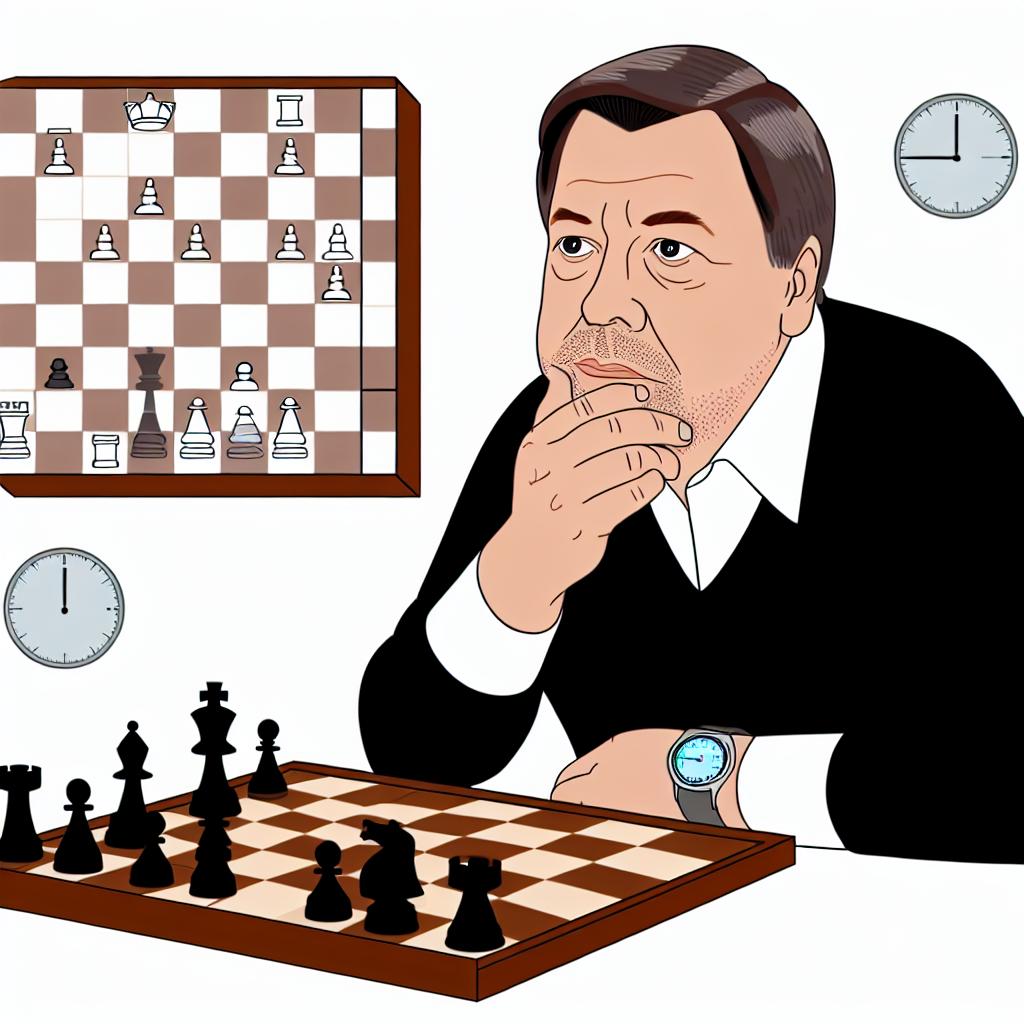Contents
Early Life and Career
Vladimir Kramnik was born on June 25, 1975, in the coastal city of Tuapse, Russia. Situated on the northeastern shore of the Black Sea, Tuapse is perhaps an unlikely birthplace for a chess prodigy. Nevertheless, Kramnik exhibited exceptional talent for the game from a tender age. His initial forays into the chess world were marked by notable performances in various youth tournaments. The most significant of these early successes came in 1991 when he triumphed in the Under-18 World Chess Championship. This victory was more than just a personal milestone; it heralded the beginning of a long and fruitful career in chess, positioning him eventually as an influential figure on the global chess stage.
Kramnik’s rise through the ranks of chess was a testament to both his inherent talent and disciplined approach to the game. His success at a young age caught the attention of the global chess community, with many experts noting his potential to challenge the established champions in the future. As Kramnik transitioned from a promising youth player to a formidable adult competitor, he continued to refine the skills that would later define his career.
World Chess Champion
The year 2000 marked a pivotal point in Kramnik’s career when he faced Garry Kasparov in what has been described as one of the most significant chess matches in history. Held in London, this match saw Kramnik dethrone Kasparov, who had been the reigning champion since 1985. Victory in this match not only awarded Kramnik the title of Classical World Chess Champion but also served as a defining moment in the annals of chess history. Garry Kasparov was widely regarded as one of the greatest players of all time, and overcoming such an opponent was a testament to Kramnik’s strategic prowess and competitive resolve.
The match itself was a showcase of Kramnik’s methodical and strategic approach. By capitalizing on Kasparov’s overextensions and avoiding unnecessary risks, Kramnik was able to neutralize his opponent’s strengths. This performance cemented his reputation and established him as one of the foremost chess figures of his time, lauded by peers and fans alike for his talent and tenacity.
Playing Style
An essential aspect of Kramnik’s success in the chess world is his distinctive playing style. Earnestly recognized for his preference for strategic play, Kramnik is known for his methodical approach to the chessboard. Unlike players who focus on aggressive tactics and flourish through dynamic and risky plays, Kramnik opts for a solid positional strategy. This style has allowed him to systematically dismantle even the most aggressive opponents.
One of the key aspects of his style is his ability to maintain control over the board, preferring to prioritize safety and small, incremental advantages. Through careful planning and precise execution, Kramnik manages to diffuse his opponents’ attacks and leverage subtle positional plays into significant advantages. His talent for endgame strategy is also noteworthy; by leading his opponents into drawn positions, he has often secured crucial points in competitive rounds.
Notable Achievements
Over the course of his career, Vladimir Kramnik has accomplished numerous achievements that have solidified his status as one of the greats in chess history. Besides becoming the World Chess Champion in 2000, Kramnik demonstrated his resilience and strategic acumen by successfully defending his title. His retention of the championship against Peter Leko in 2004 and again against Veselin Topalov in 2006 speaks volumes about his skill and consistency at the highest level.
The 2006 match against Veselin Topalov was particularly significant for chess history, as it unified the previously divided titles of Classical and FIDE World Champion. The split had persisted since 1993, and Kramnik’s victory was instrumental in bridging this gap, restoring a single unified champion in the chess world.
Beyond these accomplishments, Kramnik has also been a consistent presence in numerous international tournaments. His presence at the top echelon of chess over the years is a testament to his unwavering dedication and ability to adapt to the evolving challenges of competitive chess.
Life After World Champion Title
After losing the World Championship title to Viswanathan Anand in 2008, Kramnik continued to maintain a significant presence in the chess community. His post-championship career has been marked by participation in various elite tournaments, where he frequently occupied top positions, reaffirming his status as a formidable competitor.
Beyond competing, Kramnik has been actively involved in promoting chess on a global scale. Understanding the importance of fostering new talent and spreading the game, he has taken an active role in chess education and mentorship, nurturing future generations of chess enthusiasts.
His contributions to chess have extended to collaborations with technology companies in developing chess software, bringing his deep understanding of the game to bear on cutting-edge AI projects. Through these initiatives, Kramnik has made significant strides in expanding the reach and appeal of chess worldwide.
Retirement and Legacy
In January 2019, Kramnik formally announced his retirement from competitive chess. However, his retirement from active competition did not diminish his influence and contributions to the game. His legacy encompasses not only his victories and titles but also his profound impact on chess theory and strategy.
Kramnik’s contributions to chess theory have been substantial, with many players adopting aspects of his style into their own games. Furthermore, his career includes participation in some of the most momentous events in chess history, each one underscoring his role in shaping the game’s trajectory.
His commitment to the sport and his ability to serve as a role model for both current and aspiring players solidify his standing as an enduring figure in the chess community. Kramnik’s legacy inspires admiration and respect, highlighting a career characterized by strategic brilliance and unwavering dedication.
For more information about Vladimir Kramnik and the impact of his career, you may visit Chess.com.

